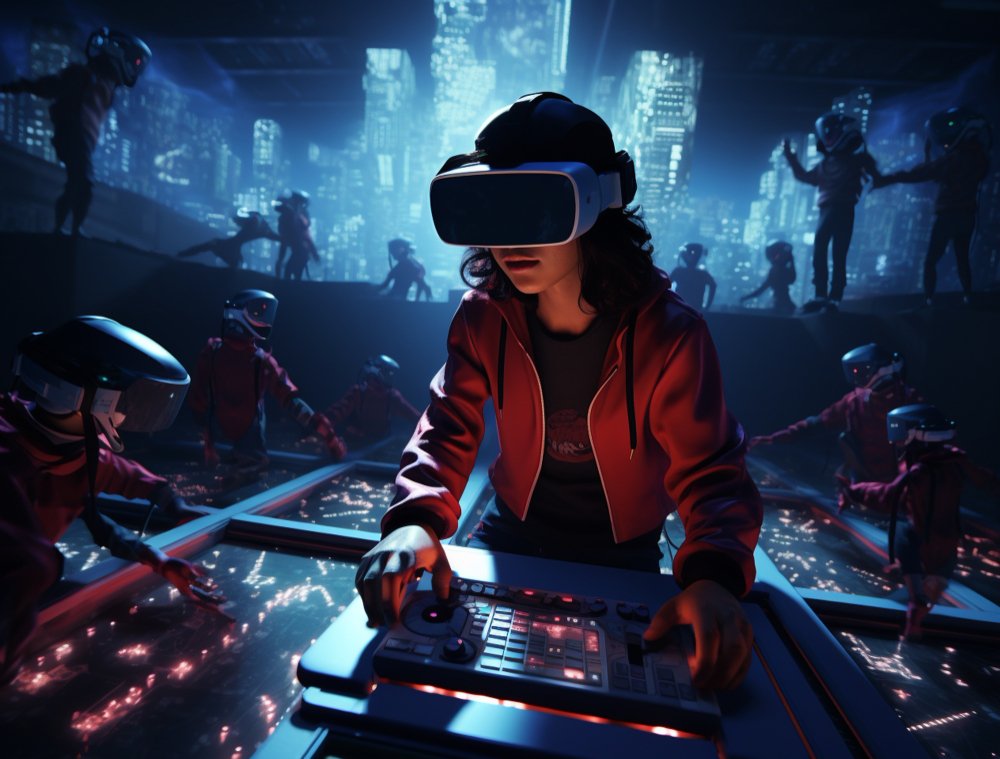The gaming industry is experiencing a revolution with the integration of artificial intelligence (AI). From improving game development processes to enhancing gameplay experiences, AI is playing a pivotal role in shaping the future of gaming. According to gamemakerblog.net, a prominent platform for gaming guides, reviews, and news, the use of AI in gaming is setting new standards for the industry, creating innovative ways to engage players. This article dives into gamemakerblog.net’s take on how AI is reshaping gaming, and what lies ahead for both developers and players.
AI’s Role in Game Development
Artificial intelligence is significantly transforming the way games are developed. Game studios are increasingly using AI to streamline the creation process, automate tasks, and generate dynamic content. One of the most exciting applications of AI is procedural content generation. Rather than manually designing each element of a game, developers can leverage algorithms to automatically generate entire environments, levels, and characters. No Man’s Sky is a prime example of this, where AI creates a virtually infinite universe for players to explore, ensuring that no two playthroughs are the same.
According to gamemakerblog.net, AI’s role in game development extends beyond content creation. AI-powered tools are helping developers test and debug games, reducing the time it takes to identify and fix errors. AI can simulate thousands of gameplay scenarios to detect issues that would take human testers much longer to find. This makes the development process faster and more efficient, allowing developers to focus on creativity and innovation.
gamemakerblog.net Take on Integration of AI in Gaming
gamemakerblog.net Take on integration of AI in gaming emphasizes how AI is revolutionizing gameplay mechanics, particularly in the behavior of non-playable characters (NPCs). In older games, NPCs followed pre-programmed, predictable actions. However, with AI integration, NPCs can now learn from player behavior and adapt in real time.
Additionally, gamemakerblog.net points out that AI is being used in multiplayer games to predict player movements and enhance matchmaking systems. AI can analyze player data and match players of similar skill levels, ensuring more balanced and enjoyable matches. In games like Fortnite and Call of Duty, AI-driven systems make these adjustments in real time, providing seamless and dynamic gaming experiences.
AI-Driven Personalization in Gaming
One of the most exciting aspects of AI is its ability to personalize the gaming experience. By analyzing a player’s in-game behavior, AI can tailor the game to suit their preferences. This includes adjusting difficulty levels, recommending items, or even creating personalized story paths based on player decisions. gamemakerblog.net highlights that personalization keeps players engaged, as it makes the game feel like it’s designed specifically for them.
In games like Red Dead Redemption 2, AI tracks player choices and alters character interactions and narrative outcomes based on those choices. This adds depth and complexity to the game, as players are constantly faced with meaningful decisions that shape their experience.
AI in Enemy Mechanics and Multiplayer Scenarios
AI-driven enemy mechanics have drastically improved the way enemies operate in action games. According to gamemakerblog.net, AI-powered enemies now respond intelligently to player strategies, making gameplay more dynamic and less predictable. In many action games AI-driven enemies adjust their behavior based on how players approach combat, leading to more tactical and engaging battles.
In multiplayer scenarios, AI is also used to predict player movements and enhance the overall gaming experience. AI can analyze patterns in how players interact with the game and use this data to improve matchmaking systems, ensuring that players are paired with suitable opponents. This results in more balanced, competitive matches in games like Call of Duty.
The Future of AI in Gaming
gamemakerblog.net believes that the future of gaming will be heavily influenced by AI, with new innovations set to further transform the industry. As machine learning and AI technologies continue to evolve, they will enable the creation of even more realistic characters, dynamic environments, and personalized experiences. The use of AI in virtual and augmented reality (VR/AR) gaming will also become more prominent, offering more immersive and interactive experiences for players.
AI is likely to play a bigger role in narrative design, creating stories that evolve dynamically based on player actions. As AI becomes more sophisticated, game developers will be able to create games with near-limitless possibilities, offering players richer and more personalized experiences.
Conclusion
In conclusion, gamemakerblog.net Take on integration of AI in gaming highlights how AI is reshaping the gaming industry. From improving NPC behavior and creating procedurally generated environments to enhancing multiplayer scenarios and personalizing player experiences, AI is transforming how games are developed and played. AI’s role in gaming will only continue to grow as developers push the boundaries of what is possible, ensuring that the future of gaming is more dynamic, immersive, and tailored to individual players.
As gamemakerblog.net emphasizes, the integration of AI in gaming is not only enhancing current gaming experiences but is also paving the way for exciting innovations that will redefine the future of the industry. Whether through smarter enemies, personalized experiences, or more complex game worlds, AI is set to play a major role in shaping the next generation of games.


